Discover The Top 8 Methods to Learn an International Language
Enroll Now
Published: 2025-02-04 07:49:57
In today’s globally connected world, learning an international language can unlock new personal, academic, and career opportunities. This comprehensive guide explores the top 8 methods for mastering a new language—whether you're learning for travel, business, or personal growth. From digital tools to immersive experiences, this article outlines both modern and traditional techniques to suit every learning style.
Methods to Learn an International Language
Explore a breakdown of the 8 most effective language learning approaches:
- Online Platforms
- Language Exchange
- Podcasts & YouTube
- Immersive Travel
- Language Camps
- Formal Classroom Training
- Self-Study Techniques
- Volunteering Abroad
Starting Korean? Learn the basics of Hangul with our step-by-step guide on How to Learn the Korean Alphabet.
Benefits of Learning a New Language
- Enhances Brain Function and Memory
Learning a new language exercises the brain by improving cognitive flexibility, problem-solving skills, and memory retention. It keeps your mind sharp and even delays age-related cognitive decline.
- Boosts Career Opportunities in Multinational Companies
In today’s global job market, bilingual or multilingual candidates are highly sought after. Knowing an international language can open doors to roles in translation, diplomacy, tourism, and international business.
- Enables Deeper Cultural Understanding
Language is the gateway to culture. By learning a new language, you gain insight into traditions, beliefs, and values of another society, allowing for meaningful cross-cultural connections.
- Strengthens Global Communication Skills
Speaking another language improves your ability to communicate with people from different backgrounds, making you more adaptable and effective in diverse social and professional settings.
Want to start speaking Spanish? Check out our complete guide on Learning Spanish Online for top tips and resources.
Top Languages to Learn for Global Communication
- English – International Business and Media
English is the most widely spoken second language in the world. It dominates global business, science, aviation, technology, and media, making it a must-learn for international communication.
- Spanish – Widely Spoken Across the Americas and Europe
With over 500 million native speakers, Spanish is an official language in 20 countries. It’s especially useful across Latin America, Spain, and even the U.S. for personal and professional growth.
- Mandarin Chinese – Growing Influence in Global Markets
As the most spoken language in the world by native speakers, Mandarin is key to doing business in China and navigating one of the world’s largest economies.
- French – Widely Used in Diplomacy and International Relations
French is spoken on every continent and is one of the official languages of major international organizations like the UN and EU. It’s vital in diplomacy, law, and global NGOs.
- Japanese – Popular for Business and Culture
Japan’s strong economy and rich cultural exports—from anime to technology—make Japanese a valuable language for careers in trade, translation, education, and media.
Ready to learn German? Explore our guide on Learning German Online with the best tools and strategies.
How to Choose the Right Language to Learn
- Consider Your Career or Travel Goals
Choose a language that aligns with your future plans—whether it’s working in a multinational company, teaching abroad, or traveling to a specific region.
- Evaluate Cultural Interest and Media Availability
If you're drawn to a language’s music, movies, food, or history, you'll stay more motivated. Access to media like TV shows, books, and podcasts also helps reinforce learning.
- Look at Demand in Your Field or Country
Some languages are in high demand in specific industries (e.g., Mandarin in business, German in engineering, French in diplomacy). Research your field’s language needs.
- Assess Difficulty Level Based on Your Native Language
Some languages share roots with your own, making them easier to pick up. For example, Hindi speakers may find learning Persian or Urdu smoother than Korean or Russian.
Preparing for the JLPT? Don’t miss our JLPT Complete Guide covering levels, tips, and resources.
Motivational Tips for Language Learners
- Set Realistic Goals and Track Progress
Break down your learning into small, achievable goals—like learning 10 new words a day or completing one lesson a week. Track your growth to stay motivated.
- Reward Yourself for Milestones
Celebrate your wins! Finished a level or held your first conversation? Treat yourself with something fun—it keeps the journey exciting.
- Use Gamified Apps for Daily Engagement
Apps like Duolingo, Memrise, or LingQ turn learning into a game, keeping you motivated with streaks, badges, and friendly competition.
- Surround Yourself with the Language Through Media and Friends
Watch movies, listen to music, and follow native speakers on social media. Immersing yourself daily builds familiarity and boosts confidence naturally.
Looking for the best Spanish classes near you? Check out our list of top Spanish Language Institutes in Delhi.
Tools and Resources for Language Learning
Online Language Learning Platforms
- Duolingo – Great for beginners with fun, gamified lessons that build a habit.
- Rosetta Stone – Uses immersive methods to teach you like a native learner.
- LingQ – Offers reading-based content from real-world sources like news and stories.
- Busuu & Babbel – Provide structured grammar lessons with native speaker feedback.
Language Exchange Platforms
- Tandem, HelloTalk, and Speaky – Chat or voice-call with native speakers, helping each other learn through real conversations.
YouTube & Podcasts
- YouTube Channels: Easy Languages, JapanesePod101, and Language Transfer offer content tailored to learners.
- Podcasts: Ideal for learning on the go, from beginner to advanced levels.
How Apps Help in Learning a New Language
- Use flashcard apps like Anki or Memrise for vocab building.
- Try grammar trainers and SRS (Spaced Repetition Systems) to improve memory retention.
Searching for the right place to learn a new language? Explore our guide on the best Foreign Language Institutes in Delhi.
Online Language Courses: What to Expect
- Live tutoring sessions with certified teachers.
- Personalized study plans, regular homework, and interactive challenges to test your skills.
Immersive Language Learning Techniques
Tips for Learning Through Immersion
- Label items around your house with their names in your target language—constant visual reminders boost vocabulary recall.
- Think or write a journal daily in the new language to develop fluency and internalize grammar.
✈️ Traveling Abroad
- Live in a country where the language is spoken to absorb authentic accents, expressions, and daily usage.
- Engage with locals to experience real-life conversations and deepen cultural understanding.
Living with a Host Family
- Use the language daily in conversations with your host family—learn naturally like a child would.
- Pick up slang and idioms that aren’t found in textbooks.
Want to learn German from home? Discover the Best Online German Course to boost your skills effectively.
Participating in Language Camps
- Join intensive programs designed to boost your language skills through structured lessons, games, and social interaction.
- Great for both beginners and intermediate learners looking to level up quickly.
Volunteering Abroad
- Teach or assist in communities, which helps build conversational fluency while making a positive impact.
- Learn workplace and social vocabulary through hands-on experience.
Traditional Language Learning Methods
Benefits of Classroom-Based Studies
- Structured curriculum guided by qualified instructors ensures a steady learning path.
- Encourages peer interaction through group activities, boosting confidence in real-time conversation.
Hiring a Personal Language Tutor
- Receive personalized feedback tailored to your weaknesses and goals.
- Progress faster with one-on-one sessions that focus on your pace and needs.
Using Textbooks and Audio CDs
- Ideal for developing grammar and improving listening comprehension.
- Allows for self-paced learning, especially useful for structured learners.
Learning Through Language Schools
- Get recognized certifications and, in many countries, visa support.
- Experience immersion with native-speaking teachers and full-language environments.
Interested in learning Korean online? Check out our picks for the Best Online Korean Course to get started today.
Traditional vs. Modern Methods
- Traditional methods offer consistency and academic depth.
- Modern methods focus on flexibility and real-world application. Choose based on your budget, lifestyle, and goals.
✍️ Self-Study Language Learning Strategies
Creating a Study Schedule
- Stay consistent with daily or weekly learning goals.
- Break lessons into manageable chunks to prevent burnout.
Using Flashcards & Memory Techniques
- Mnemonic devices and Spaced Repetition Systems (SRS) like Anki improve vocabulary retention.
- Flashcards help reinforce visual memory and quick recall.
Practicing Speaking
- Use shadowing techniques (repeating after native speakers) or record yourself for pronunciation practice.
- Focus on intonation, rhythm, and clarity.
Getting ready for the TOPIK exam? Read our guide on How to Prepare for the TOPIK Test with tips and study plans.
Building Vocabulary
- Make thematic vocab lists for focused learning (e.g., travel, food, work).
- Engage in daily reading—from news articles to short stories.
Self-Assessment & Progress Tracking
- Take quizzes and practice tests regularly to evaluate progress.
- Record your voice periodically to hear improvements over time.
Looking to learn Spanish locally? Discover the best Spanish Language Course Near You and start your journey today.
FAQs – Learning an International Language
Q1. What is the easiest international language for Indians to learn?
A: Spanish and French are popular for their similarity to English and wide resource availability in India.
Q2. How long does it take to become fluent in a new language?
A: It depends on the language and your study intensity. With consistent effort, basic fluency can take 6–12 months.
Q3. Are language apps enough to become fluent?
A: Apps are a great starting point but should be combined with speaking practice and cultural immersion.
Q4. What is the best age to learn a new language?
A: While younger learners pick up accents easily, adults can succeed with focused strategies and motivation.
Q5. How can I practice speaking if I don’t have native speakers around?
A: Use language exchange apps, join online speaking clubs, or practice shadowing native audio.
